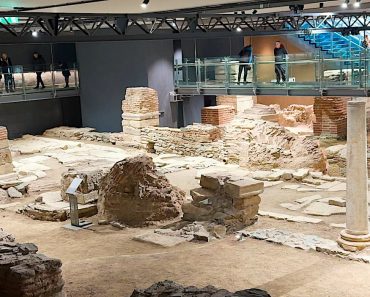The descendants of Constantino II, the last king of Greece, have achieved a significant milestone by reclaiming their Greek nationality after nearly three decades. This modification comes as a result of a decree issued by Greece’s Ministry of Interior, which allows ten descendants, composed of five children and five grandchildren of the late monarch, to adopt the surname “De Grece.”
On Friday, the official announcement confirmed that this recognition of nationality is a formal acknowledgment rather than a new citizenship grant. The measure aligns with a 1994 law, as explained by the Interior Secretary, Athanasios Balerbas. He remarked on the notable timing of this decision, suggesting a closure to historical affairs 50 years after the establishment of the Greek republic.
However, the choice of surname has sparked controversy. Critics, particularly from leftist circles, argue that “De Grece” hints at an attempt to cling to royal ties. The surname is derived from the French term for Greece and has been used historically by members of the royal family.
Initially, authorities proposed the name Glücksburg, a nod to the family’s German roots, but this was declined. Under current regulations, the family was free to select a surname of their choice, which will not confer any aristocratic title. This long-awaited resolution may redefine the legacy of the former Greek monarchy in modern Greece.
Reclaiming Royal Roots: The Greek Monarchy’s Legacy Resurrected
### The Restoration of Greek Nationality for Royal Descendants
The descendants of Constantino II, the last king of Greece, have recently celebrated a momentous achievement: the restoration of their Greek nationality after almost thirty years. This decision came to light following a decree from Greece’s Ministry of Interior, which has permitted ten heirs, including five children and five grandchildren of the late monarch, to adopt the surname “De Grece.” This change marks a significant turning point in the recognition of the former royal lineage within modern Greece.
### Clarification of Citizenship vs. Recognition
It is important to note that this announcement is a formal recognition of nationality rather than a new grant of citizenship. According to the Interior Secretary, Athanasios Balerbas, this move aligns with a law enacted in 1994 which sought to address the status of former royal family members. This decree brings closure to a contentious chapter in Greek history, particularly as it coincides with the 50th anniversary of the establishment of the Greek republic, signaling a historical reconciliation.
### Controversies Surrounding the New Surname
While the decision has been welcomed by royal supporters, it has also ignited debates. The choice of the surname “De Grece” has faced backlash primarily from left-leaning factions, who assert that it symbolizes an undue attachment to royal heritage and attempts to maintain an aristocratic identity. The surname itself, derived from the French term for Greece, has deep historical roots within the former royal family, raising questions about the relevance and implications of such a title today.
### Alternative Names and Regulatory Framework
In an interesting twist, there were initial considerations for the surname “Glücksburg,” which would reflect the family’s German lineage. However, this suggestion was ultimately turned down. Under current regulations, the family was given the liberty to select a surname of their preference, yet it is crucial to highlight that this change does not imply any restoration of aristocratic titles or privileges.
### The Future of the Greek Monarchy’s Legacy
This decisive step in recognizing the descendants of Constantino II may signal a new era for the legacy of the former Greek monarchy. It prompts discussions about the role of royal heritage in contemporary Greek society, and how these historical figures will be integrated into modern national identity.
### Use Cases and Implications
The recognition of the royal descendants could have various implications, such as:
– **Cultural Events**: Increased interest in cultural and historical events commemorating the former monarchy.
– **Tourism Opportunities**: Potential boosts in tourism, particularly in sites historically associated with the Greek monarchy.
– **Academic Research**: A resurgence in scholarly interest regarding the historical impact of the Greek monarchy and its role in shaping modern Greece.
### Closing Thoughts
As the descendants reclaim their heritage, the discourse surrounding monarchy, identity, and national pride is set to evolve. Whether this recognition will foster a renewed interest in Greece’s royal past or remain merely symbolic is yet to be determined, but it undoubtedly opens a chapter of inquiry into the dynamics of Greek nationalism and historical memory.






